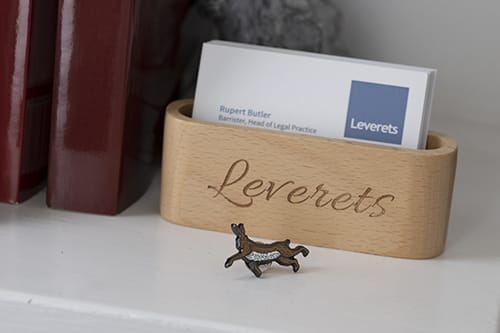Romance Fraud
In April 2025, five money launderers were convicted of using romance fraud to scam 40 victims out of an estimated £3.25 million.
These criminals created fake profiles and fictional biographies on dating websites, to manipulate their victims into thinking they were entering a genuine loving and caring relationship. But this was all a ruse. They asked their victims for money for a range of fake reasons, including loans to pay for business trips gone wrong, payment of fines, or even a stolen wallet. Victims were asked to transfer money to their bank accounts – a total of £3.25 million was paid and subsequently laundered.
It’s one of those crimes we all think would never happen to us. But nobody is immune from fraud.
Romance fraud on the rise in the UK
 Fraud constitutes more than one-third of all reported crimes in the UK. 54% of scams are initiated via social media platforms, including dating sites.
Fraud constitutes more than one-third of all reported crimes in the UK. 54% of scams are initiated via social media platforms, including dating sites.
In 2024, Action Fraud recorded 8,548 cases of romance fraud, accounting for more than £92 million lost.
Data from Barclays’ recent Scams Bulletin shows romance fraud scams were up 20% in the first quarter of 2025. Such is their prevalence that more than one in 10 (12%) of UK adults have been targeted themselves or know someone who has been.
Meanwhile, according to UK Finance, 21% of adults using online dating services say they have either been asked for, or have actually given, money to someone they met online.
Victims lose £8,000 on average, a figure that increases to £19,000 for victims aged over 61.
What is romance fraud and how is it perpetrated?
Romance fraud refers to scams where a fraudster pretends to be interested in a romantic relationship with their victim (often via a dating site), gaining their trust with an elaborate backstory that tugs on the heartstrings, before manipulating them into sending money or divulging personal information which can be used illegally. These fraudsters typically instruct the victims to transfer money to a bank account (often internationally) – known as Authorised Push Payment (APP) fraud. They may alternatively ask victims to withdraw cash which a courier will pick it up, or to make a cryptocurrency transfer.
Romance fraud is overwhelmingly perpetrated via social media platforms and dating apps.
 Far from a smash and grab approach, these fraudsters play the long game. They establish trust with their victims, investing weeks, months or in some cases even years building a fake relationship. They utilise tactics akin to domestic abuse – love bombing, coercive control and isolation – to exploit the emotions of their victims.
Far from a smash and grab approach, these fraudsters play the long game. They establish trust with their victims, investing weeks, months or in some cases even years building a fake relationship. They utilise tactics akin to domestic abuse – love bombing, coercive control and isolation – to exploit the emotions of their victims.
Perhaps the most famous romance fraud case was the infamous Tinder Swindler. Conman Shimon Hayut swindled dozens of women out of millions through a Ponzi scheme. With each victim he created a fake emergency – claiming enemies had frozen his bank account or that a business deal had gone wrong – and then requested financial help. He used this money to fund a luxurious lifestyle.
The Impact
 Victims of romance fraud often feel embarrassed and vulnerable when they realise what’s happened. Not only are they financially damaged, they are left emotionally devastated as well.
Victims of romance fraud often feel embarrassed and vulnerable when they realise what’s happened. Not only are they financially damaged, they are left emotionally devastated as well.
According to a recent survey conducted by Lloyds Banking Group, fraud of this nature comes with a stigma and a significant toll on mental health and wellbeing.
In fact, 69% of victims report a negative impact on mental health, with 36% becoming less trusting of online platforms. 29% reported themselves as becoming more sceptical of people in their lives, and 20% of feeling more anxious because of their experiences.
And of course, there is the financial cost. Data from the National Fraud Intelligence Bureau (NFIB), suggest the average loss per victim exceeds £10,000.
What recompense for victims?
In October 2024 the Payment Systems Regulator introduced a mandatory reimbursement scheme in relation to APP fraud, compelling banks and payment service providers to compensate victims of romance fraud up to a value of £85,000. However, banks do have the power to deny this compensation where they think the victim themselves has been grossly negligent (i.e. acted unreasonably or irrationally).
Aside from a criminal case, victims may also be able to explore civil action as a means of seeking justice and recovering funds.
We will delve deeper into criminal prosecution, civil litigation, and recovery of funds in future blogs.
Leverets’ team of barristers and solicitors specialise in advising clients on fraud prevention and recovery of assets. Our team understands the distress and financial burden associated with these experiences. We liaise with the police, international crime agencies, and a network of partners around the world to ensure our client receive the best possible advice and remedies.
Keep an eye out for our next blog, for practical advice on how to avoid becoming the victim of romance fraud.







